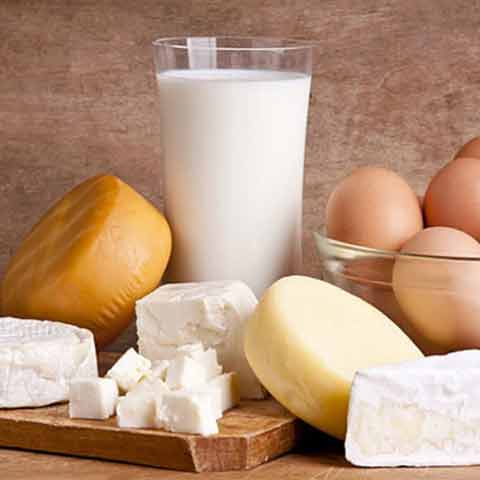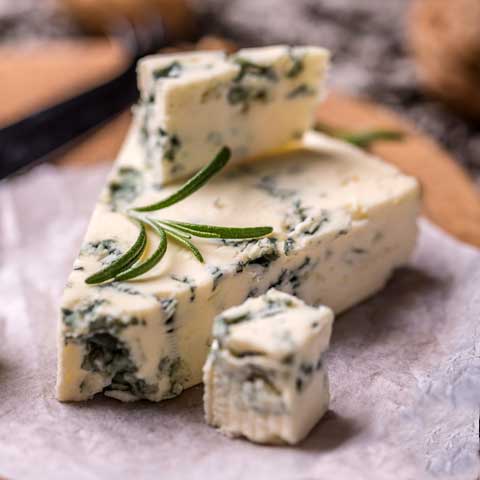
Milk, canned, evaporated, with added vitamin D and without added vitamin A
You can easily calculate the calorie and nutritional values of Milk, canned, evaporated, with added vitamin D and without added vitamin A for different amounts (fl oz, cup, can) by clicking on the CALCULATE button. You can analyze your nutrition history by adding food into your nutrition diary.
How many calories are in Milk, canned, evaporated, with added vitamin D and without added vitamin A?
Milk, canned, evaporated, with added vitamin D and without added vitamin A contains 134 calories per 100 grams. This value corresponds to about 7% of the daily energy expenditure of an adult burning about 2000 calories a day.
Calorie, carbohydrate, protein and fat percentages of Milk, canned, evaporated, with added vitamin D and without added vitamin A
100 grams of Milk, canned, evaporated, with added vitamin D and without added vitamin A contains 10.04 grams of carbohydrate, 6.81 grams of protein and 7.56 grams of fat. It consist of 41% carbohydrate, 28% protein and 31% fat. 30% of total calories of the food are from carbohydrate, 20% are from protein, 50% are from fat.
100 grams of Milk, canned, evaporated, with added vitamin D and without added vitamin A is approximately 3% of daily carbohydrate needs, 14% of protein needs and 12% of fat needs of an adult consuming about 2000 calories of energy a day.
Recommended percentages are 50-55% carbohydrate, 15-20% protein and 20-30% fat. Total nutrition content should be close to these percentages for healthy eating.
Calculate nutritional values of Milk, canned, evaporated, with added vitamin D and without added vitamin A
134 kcal
100 gram(s)
| Amount | 100 g |
|---|---|
| Calorie | 134 kcal |
| Carbohydrate, by difference | 10.04 g |
| Protein | 6.81 g |
| Total lipid (fat) | 7.56 g |
| Water | 74.04 g |
| Fiber, total dietary | 0 g |
| Sugar | 10.04 g |
| Calcium, Ca | 261 mg |
| Iron, Fe | 0.19 mg |
| Magnesium, Mg | 24 mg |
| Phosphorus, P | 203 mg |
| Potassium, K | 303 mg |
| Sodium, Na | 106 mg |
| Zinc, Zn | 0.77 mg |
| Copper, Cu | 0.016 mg |
| Manganese, Mn | 0.006 mg |
| Selenium, Se | 2.3 µg |
| Vitamin C, total ascorbic acid | 1.9 mg |
| Thiamin | 0.047 mg |
| Riboflavin | 0.316 mg |
| Niacin | 0.194 mg |
| Pantothenic acid | 0.638 mg |
| Vitamin B-6 | 0.05 mg |
| Folate, total | 8 µg |
| Folic acid | 0 µg |
| Folate, food | 8 µg |
| Folate, DFE | 8 µg |
| Choline, total | 31.8 mg |
| Vitamin B-12 | 0.16 µg |
| Vitamin A, IU | 233 IU |
| Vitamini A, RAE | 65 µg |
| Retinol | 64 µg |
| Carotene, alpha | 0 µg |
| Carotene, beta | 12 µg |
| Cryptoxanthin, beta | 0 µg |
| Lycopene | 0 µg |
| Lutein + Zeaxantin | 0 µg |
| Vitamin E (alpha-tocopherol) | 0.14 mg |
| Vitamin D (D2 + D3) | 2 µg |
| Vitamin D | 79 IU |
| Vitamin K (phylloquinone) | 0.5 µg |
| Fatty acids, total saturated | 4.591 g |
| Fatty acids, total monounsaturated | 2.335 g |
| Fatty acids, total polyunsaturated | 0.245 g |
| Cholesterol | 29 mg |
| Ash | 1.55 g |
| Source | USDA |
How many calories are in other foods in the food group Dairy and Egg Products?
Some of other foods in the food group Dairy and Egg Products are listed below. You can learn how many calories are contained in food by clicking on the relevant food and reach other nutritional values, especially carbohydrate, protein and fat.
